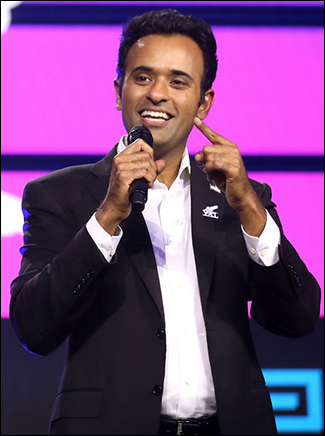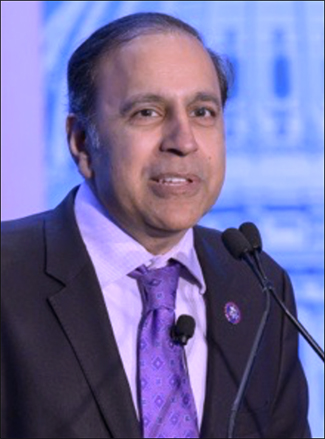By Jim Ellis — Thursday, Sept. 18, 2025
House

Congressman Thomas Massie (R-KY) / Photo by Gage Skidmore, Flickr
While saying he is a “constitutional conservative,” Massie has also caused Republican leaders to bristle at his consistent opposition to Republican budget. Furthermore, he is now teaming up with Rep. Ro Khanna (D-CA) to file a disclosure petition to force a floor vote pertaining to releasing the Epstein files.
The Congressman’s antics have spurred President Trump to publicly call for a Republican to come forward to challenge Rep. Massie in the party primary.
A report surfacing in The Down Ballot political blog states that Kentucky GOP leaders are now attempting to convince former Attorney General and 2023 gubernatorial nominee Daniel Cameron to abandon his US Senate race and instead challenge Rep. Massie in the May 2026 Kentucky GOP primary.
Cameron shot down the story as “fake news,” but such is often the case with potential candidates before they eventually make a race to which they originally rejected. That’s not to say, however, that Cameron has a long-term plan to switch campaigns. The former AG points out that he is leading in US Senate polls, thus rhetorically questioning why he would leave that campaign.
While the latest published US Senate Republican primary survey did find Cameron leading Congressman Andy Barr (R-Lexington), 37-29 percent (Public Opinion Strategies, Sept. 2-4; 600 likely Kentucky Republican primary voters; live interview), his margin is down from the 44-18 percent lead he posted in an April McLaughlin & Associates poll (April 13-15; 500 likely Kentucky Republican primary voters; live interview).
Additionally, Cameron is way behind in campaign resources. According to the June 30 Federal Election Commission campaign financial disclosure report, Rep. Barr possessed $6.1 million in the Cash-on-Hand category while Cameron’s campaign account had only $532,000. Therefore, the campaign momentum is shifting in Rep. Barr’s favor.
Looking at the complete picture, it would not be surprising to see Cameron look for other options since Rep. Barr soon taking the lead in their primary campaign appears likely.
Despite President Trump asking for potential Republican candidates to come forward to challenge Rep. Massie, no major contender has yet entered the race. Freshman state Sen. Aaron Reed (R-Shelbyville) had been mentioned as a possibility, but no candidacy has yet materialized. Same for state Rep. Kim Moser (R-Independence).
Yet, even if Cameron were to enter the congressional race, Rep. Massie is not an easy mark, even if an eventual challenger has the Trump endorsement.
Thomas Massie was first elected to the House in 2012, after winning the Lewis County Judge-Executive position in 2010. Lewis County is a small (just over 13,000 population) rural domain on the Ohio border in Kentucky’s northeastern region. In his initial local election, Massie defeated an incumbent in the GOP primary. Moving to his first congressional race two years later, Massie became the first person to win the 4th District hailing from eastern Kentucky in 45 years.
The Congressman is also a popular figure back home, even while being unpopular in Washington. In his seven congressional elections, Rep. Massie has averaged 70.7 percent of the vote including running unopposed in 2024. He has been challenged as an incumbent in three Republican primaries and averaged 77.4 percent of the vote in those elections.
In preparation for a potential primary challenge, Rep. Massie jumped out to a fast start. Since the beginning of the year, he has raised over $1 million and reports $1.7 million cash-on-hand. This figure is more than three times what Mr. Cameron has in his statewide account, for example.
Therefore, while Massie may be President Trump’s top GOP prospect for replacement, the early prognostication favors the intransigent incumbent to win yet again.






